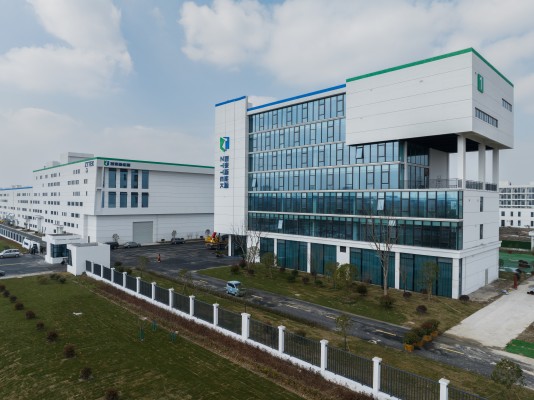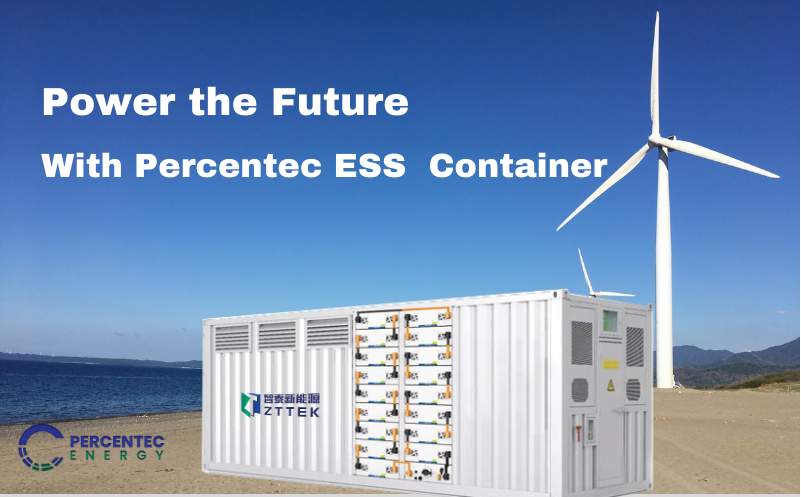
Our Factory
Battery Energy Storage System Company
Percentec Energy (ZTTEK Parent Company) is a Battery manufacturing company and this Battery manufacturer company manufactures lithium and sodium ion cells with a design capacity of 15GWh per year, and provide solutions for low-power vehicles, energy storage, and power backup battery needs.
Percentech Energy Solutions is one of the companies dedicated to advanced energy storage solutions for residential, commercial, and large-scale projects. Its main aim is to design and develop energy storage systems, in particular battery energy storage systems, to manage the efficient storage of energy—mainly derived from renewable sources. Percentech offers home battery storage with solar to ensure the excess solar energy is stored in battery storage for home use during peak times. More broadly, Percentech’s battery storage projects offer very critical energy power storage to support grid stability. In this respect, their ESS energy storage system is important for these initiatives to provide reliable power storage serving applications in differing application areas. Percentech battery storage solutions leading modern energy management at every stage, from residential energy projucts on grid/ off grid to larg commercial and industrial enegry projects.
- Check detials: https://www.percentec-energy.com/company/
Company Data
| Established date | June 7, 2013 |
| Company location | Shanghai &Taizhou, China |
| Factory locations | Taizhou, Dongtai, Nantong |
| Registered capital | 371.134021 million RMB |
| Company website | https://www.percentec-energy.com/ |
| Total Output capacity | 15 GWH |

All-in-one cabinet Energy Storage System for Commercial Use
ALL-IN-ONE BATTERY ENERGY STORAGE SYSTEMS
The role of Energy Storage Systems (ESS) is to optimize the supply of power when it is most required, hence facilitating the integration of renewable energy smoothly into the grid. ESS significantly enhances microgrid stability, equalizes generation against load, and provides critical frequency regulation at 60 Hz. This makes sure the network remains stable and guarantees there is reliable power to high-tech industries. The energy storage integrated with power electronics will be driving the upcoming revolution in the electric power industry.
Types of batteries
All batteries contain a cathode (positive), an anode (negative), and an electrolyte which allows material to pass between them. Although this setup is pretty much standard, the way in which batteries store energy varies between battery types. The most common rechargeable batteries in use today are lithium-ion and lead-acid.
Lithium-Ion Batteries
Lithium-ion batteries store energy as lithium ions move between the cathode and anode via the electrolyte. Unlike lead-acid batteries with a single chemistry, lithium-ion batteries feature diverse chemistries for varied applications.
Energy Management System (EMS): The EMS controls and schedules Battery Energy Storage System (BESS) operations, optimizing performance by communicating with the PCS/Hybrid Inverter and BMS. It considers external data from the grid, transformers, PV arrays, and loads to determine optimal power discharge for applications like peak shaving, load shifting, or self-consumption. The EMS balances cycling data, battery life, and ROI while managing BMS and PCS limitations. It also collects and analyzes performance data for streamlined reporting and forecasting.
Battery Management System (BMS): A Battery Management System (BMS) is essential for any lithium-based energy storage system, acting as the system’s brain to protect the battery from damage. It ensures safe operation by monitoring critical parameters like state of charge (SoC), state of health (SoH), voltage, temperature, and current. Advanced BMS solutions, such as those used by EVESc0, provide real-time monitoring and protection at the cell, module, string, and system levels. The BMS also uses algorithms for data analysis, environment control, and thermal management to prevent issues like thermal runaway, ensuring battery safety and longevity.
Supervisory Control and Data Acquisition Software: monitors and controls BESS components, communicating with the controller via PLC (Programmable Logic Controller). It interacts with the BMS to monitor battery status and can connect with the PCS/Hybrid inverter and auxiliary meters. Through the HMI (Human-Machine Interface), operators can issue commands, set parameters, and manage the BMS and auxiliary systems. Most BESS can integrate with third-party our systems through various interfaces, and software can also assume the role of an EMS.
Power Conversion System (PCS) and Hybrid Inverter: The Power Conversion System (PCS) or Hybrid Inverter is essential for BESS, converting stored DC power from the battery into AC power for grid or load use, and vice versa for charging. Unlike standard inverters, PCS can convert power directionally, enabling both charging and discharging of the battery. It operates in various modes tailored to specific BESS applications, requiring real-time battery status to optimize performance. The PCS ensures accurate power response by communicating with the battery and can be controlled by pre-set strategies, external signals, or an Energy Management System (EMS).
Heating, Ventilation, and Air Conditioning (HVAC): HVAC plays a crucial role in a battery energy storage system (BESS) by regulating the internal environment and ensuring optimal temperature and air distribution. For lithium battery systems, proper HVAC management prevents overheating, reduces degradation, and extends battery life, ultimately enhancing BESS performance and longevity.
The controller is the central brain of the entire BESS, overseeing, controlling, and protecting its key components, or subsystems. It ensures optimal operation by communicating with both internal components and external devices like electricity meters and transformers. With multiple levels of protection, including overload and reverse power protection, the controller safeguards the system during charging and discharging.
Usage and Application of Battery Energy Storage Systems (BESS)
Renewable Energy Projects
Governmental, Commercial and industrial applications, BESS is used for peak shaving, where the system discharges stored energy during periods of high demand, reducing the load on the grid and lowering electricity costs.
Check: https://www.percentec-energy.com/product





